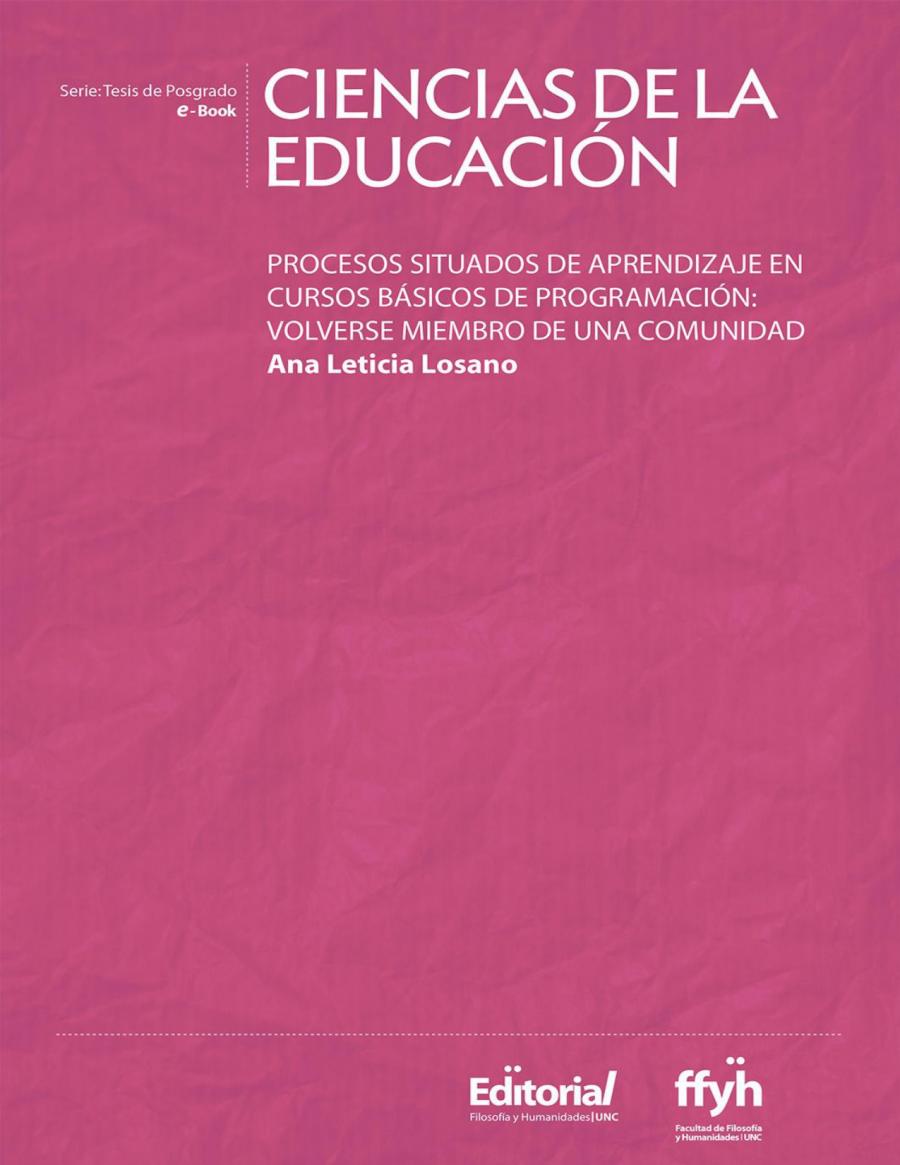Situated learning processes in basic programming courses: becoming a member of a community
Keywords:
aprendizaje - procesos situados, programación, ciencias de la computaciónSynopsis
Professor of Physics, graduated from the Faculty of Mathematics, Astronomy, and Physics at UNC. For the past five years, she has been working within the Science and Technology Teaching Group – Mathematics Area at FaMAF. She also collaborates with international groups dedicated to mathematics education: Grupo de Pesquisa da Prática Pedagógica em Matemática at the Faculty of Education of the University
This work is the result of research that seeks to analyze and describe the learning processes in introductory programming courses for first-year university students studying computer science. The research was carried out by studying the entry into the Bachelor of Computer Science program at the Faculty of Mathematics, Astronomy, and Physics of the National University of Córdoba. The theoretical perspective underlying this thesis is the theory of situated learning, which allows for a broad approach to the research problem, bringing to the forefront the mutually constitutive relationships between social communities and people's identities.
Under this approach, the problem of entering the degree program can be analyzed as the encounter between new students and the community of the degree program that the students intend to join. Using a qualitative methodology, data was collected through four months of ethnographic fieldwork focused on the Introduction to Algorithms course, which is the first course in the curriculum strongly related to programming.
Through fieldwork, it was possible to gain insight into the experiences and difficulties that six first-year students and three teachers encountered on a daily basis. The ethnographic records were supplemented and contrasted with interviews conducted with the main informants in the fieldwork. A comprehensive description of the research field and the daily lives of teachers and students in it allows us to situate the analysis, which is broken down into four emerging categories.
The first category, considering learning as a culturally, socially, and historically situated process, analyzes what students learn during their entry into the degree program. The second category focuses on one of the practices that, due to its place in the
curriculum, is central to achieving good performance in the subject: the construction of formal demonstrations.
The third category analyzes the characteristics of the communities of practice of which the students with whom we worked became members, analyzing the trajectories that each of them followed within them. Finally, the fourth category refers to the construction of identities, success, and failure as social, cultural, and historical processes in which a multiplicity of people are involved. The ongoing relationships established between the analyses carried out within each category make it possible to account for the varied trajectories, experiences, and experiences of the students participating in the research in their attempt to become members of a particular educational community.

Downloads
Published
Categories
License

This work is licensed under a Creative Commons Attribution-NonCommercial-ShareAlike 4.0 International License.


